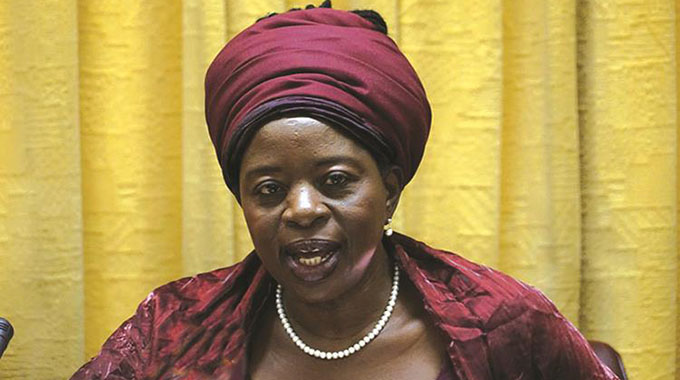‘Govt, business talks to stabilise economy’

Prosper Ndlovu recently in MAUN, Botswana
While exchange rates have been largely stable for six months, with the interbank rate which governs the overwhelming majority of trades drifting down two percent a month, Industry and Commerce Minister Dr Sekai Nzenza agrees that continued stability needs dialogue between Government and the private business.
She was part of President Mnangagwa’s team that was in Maun, Botswana, last week for the second session of the Zimbabwe-Botswana Bi-National Commission (BNC).
She said currency stability was critical as Zimbabwe focused on increasing domestic production and driving exports in line with the long-term strategic goal of transforming Zimbabwe into an upper middle income economy by 2030.
From the final quarter of last year, Zimbabwe has moved from being a net importer to a net exporter, reducing strain on the rate.
She noted that speculation in the black market, which handles a minority of currency trading, caused the market to fluctuate more than the official market.
“Government is addressing the difficult, but critical issue of currency reform,” said Dr Nzenza.
“Continual fine-tuning of monetary policy, close engagement between Government and major private sector players including the banks, and the ongoing steady migration towards a fully transparent interbank forex trading system, will address and effectively eliminate these distortions which, regrettably, continue to complicate trade and investment flows.”
The local currency has largely been stable in the last six months as the market develops confidence.
Dr Nzenza said the prolonged use of the US dollar, from 2009 to February 2019, had done more harm than good to the performance of the local industry.
It also affected the export sector, as locally-produced goods were expensive and therefore uncompetitive.
In a bid to open up and facilitate investment-led economic recovery, Government has taken significant measures to improve the ease of doing business.
The new dispensation has abandoned the restrictive clauses of the indigenisation policy, especially the section that wanted locals to hold 51 percent shareholding in all businesses owned by foreigners.
Zimbabwe climbed 15 places in the 2019 World Bank ease of doing business global index in recognition of its efforts to transform the investment climate.








Comments